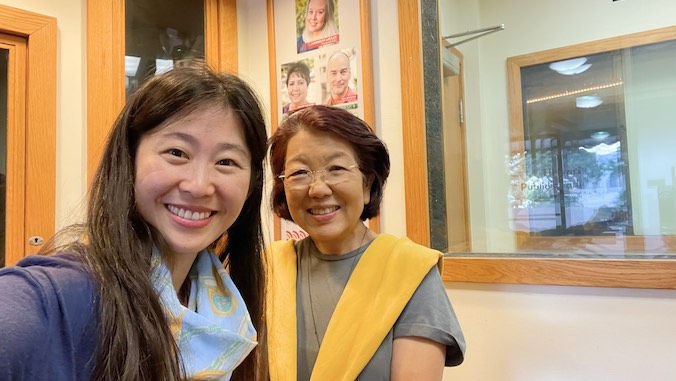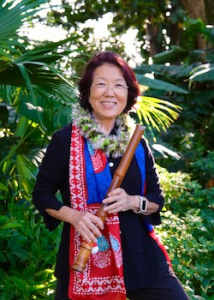
Two social work researchers from the University of Hawaiʻi at Mānoa are set to begin a pioneering study exploring an innovative blend of mindful meditation practices. Focusing on reflection with sensory integration, they will utilize the Japanese bamboo flute, shakuhachi and haiku poetry writing to shed new light inspiring the well-being of older adults (kūpuna).
Researchers Katsumi Takemoto and Yeonjung Jane Lee have shared insights from their work in the Hawaiʻi Journal of Health & Social Welfare, bringing attention to the potential of these practices to foster healing and resilience within the community.
The study engages participants in sessions with the shakuhachi performed by Takemoto, into nature-inspired poetry. Data will be collected through pre- and post-session surveys and reflections, focusing on participants’ perceived mind-body experiences. The ultimate goal is to use the findings to develop accessible interventions that enhance the lives of kūpuna while potentially reducing healthcare costs.
Personal experience leads to study
Takemoto, a public administration graduate and current master of social work student specializing in gerontology, is leading the study. She has practiced meditation since the age of eight and has more than forty years of expertise with the shakuhachi. Her commitment to fostering reflection and peace led her to play for hospice patients, creating what she describes as a “sacred space for self-reflection.”

“I’ve observed through the spirit of serving, when playing the natural sounds through bamboo, my shakuhachi becomes a living vessel, and has brought peace to those in physical or emotional pain that often go beyond what human language can express” said Takemoto. “This study is important to me because I believe cultural and Indigenous knowledge is healing medicine that must be respected and honored alongside the dominant Western medical model that society has adopted.”
Lee, an associate professor at the Thompson School of Social Work & Public Health, highlighted the importance of integrating culturally responsive practices in health care for Hawaiʻi’s diverse kūpuna population.
“From a decolonizing perspective, it is critical to implement culturally responsive approaches, such as shakuhachi and haiku reflection, to promote the health and well-being of diverse older adults in Hawaiʻi,” said Lee. “Katsumi’s work is rooted in our community, and she has rich experience and a critical lens for cultural sensitivity and intersectionality. Katsumi’s compassion, expertise, sensitivity and cultural humility, just to name a few, shine in her work.”
“Through this research, we hope to illuminate the lives of our kūpuna with culturally grounded practices,” said Takemoto.

